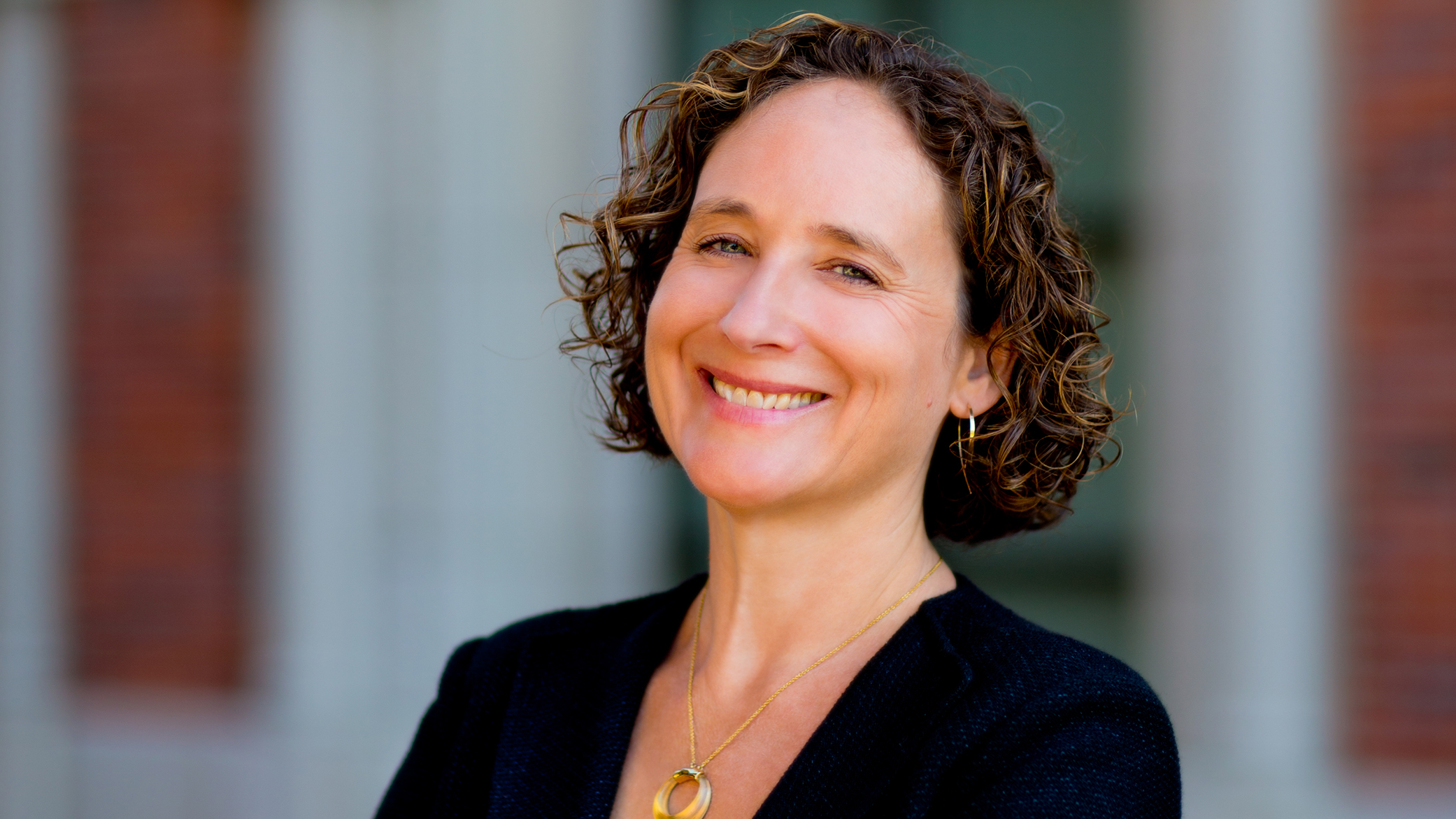Seasoned academic leader to helm $13 billion California-based funder
Cliquez ici pour lire en français | Haga click aquí para leer en Español
Amber D. Miller, an astrophysicist and pathbreaking university leader who has served as a dean at both the University of Southern California and Columbia University, has been named the next president of the William and Flora Hewlett Foundation, the foundation’s board of directors announced today. She will begin the role in September.
The first scientist and the first woman to lead Hewlett, Miller is currently dean of the USC Dornsife College of Letters, Arts and Sciences, the largest school at USC, where she is responsible for managing a multidisciplinary institution with nearly 2,000 faculty and staff and programs ranging from art history to economics to environmental sciences and gender studies. She previously served as the inaugural dean of science at Columbia University, where she enhanced connections across science, engineering, medicine, and other specialties.
In addition to strengthening the college’s research and teaching across a range of disciplines at USC, Miller launched a number of signature initiatives including Public Exchange, a new way to bring academic expertise into partnership with civic and business leaders to tackle complex societal challenges such as climate and health; and the Center for the Political Future, which aims to create a healthier, more robust, and more bipartisan dialogue. At Columbia, Miller led a large and successful research team that spanned the fields of experimental cosmology and atmospheric physics and played leading roles in a number of international scientific collaborations. She is also known for creating innovative training and mentoring programs to support and increase the leadership pipeline for women and people of color at all levels.
“Amber Miller is a creative, seasoned leader with a profound commitment to the foundation’s core goals of strengthening our democracy, protecting our environment, and improving people’s lives,” said Hewlett Foundation board chair Mariano-Florentino (Tino) Cuéllar. “At a time when the world faces so many critical challenges that depend on bridging divides and advancing human knowledge, she will build on the foundation’s long tradition of bringing intellectual rigor to our mission and the sector while adding the insights of a cutting-edge scientist.”
“From addressing the climate emergency to improving the future of democratic and economic systems to supporting education and equity, the Hewlett Foundation is tackling the most important issues facing society — and ones that I care about deeply,” Miller said. “I am honored by the opportunity to lead this foundation, in the spirit of Bill and Flora Hewlett’s legacy, and work with staff, grantees, and other partners at this crucial moment when the creativity and flexibility of philanthropy is urgently needed.”
“The board cast a wide net and met with a broad range of candidates with diverse backgrounds and expertise,” said Hewlett Foundation board member Alecia DeCoudreaux, President Emerita of the former Mills College, now Mills College at Northeastern University, who chaired the board’s search committee. “The first scientist and the first woman to lead Hewlett, Dr. Miller is a pioneering leader in her field and stood out for her executive leadership, which blends strategic vision and a collaborative approach. She has a deep commitment to strengthening our longstanding programs in areas such as the arts, education, environment, and reproductive health as well as newer work in areas such as racial justice. Our board is confident that she will work to ensure Hewlett maximizes its impact and stays true to the philanthropic values of our founders — emphasizing patient, adaptive, effective support to nonprofit institutions — so that we can help build a world where all people can flourish.”
Miller succeeds constitutional scholar Larry Kramer, who stepped down at the end of 2023 to become the president and vice chancellor of the London School of Economics and Political Science. Cuéllar, who is president of the Carnegie Endowment for International Peace and a former California Supreme Court justice, expressed gratitude to the foundation’s longtime general counsel Elizabeth Peters, who has been serving as interim president and will continue to do so until the fall to ensure a smooth transition. Miller will step down from her role as dean on June 15, and spend the summer on scholarly commitments.
Miller’s academic research focuses primarily on experimental cosmology. Specifically, her research involves using observations of light emitted when the universe was only 380,000 years old to study the origin of the universe and the fundamental fabric of spacetime. She has long held a strong interest in the intersection of science and policy and, most recently, has focused on finding innovative ways at USC to leverage the institution’s academic expertise and multidisciplinary partnerships to accelerate the transition to clean energy and address climate change.
The first female dean at USC Dornsife, she created the school’s first Chief Diversity Officer role in 2018 and significantly bolstered support for underrepresented groups in academia, including women and people of color, through a robust plan that included recruitment, fellowships, and support for students, faculty, and leadership.
A California native, Miller received her B.A. in astronomy and physics from the University of California, Berkeley, and her Ph.D. in physics from Princeton University. Her honors and awards include a National Science Foundation Career Award, an Alfred. P. Sloan Fellowship, and a Lenfest Distinguished Faculty Award. Before joining the faculty at Columbia University, Miller was a Hubble Fellow at the University of Chicago. She is a fellow of the American Physical Society, a board member of the New York Academy of Sciences, and a member of the Council on Foreign Relations, the Los Angeles Institute for the Humanities, and the Pacific Council on International Policy.

